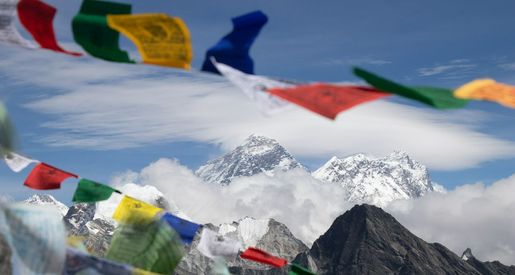- Details
- Category: Knowledge Centre
Managing your energy on the Everest Base Camp Trek
A lesson in managing your energy during your Everest Base Camp trek.
When undertaking any high altitude adventure for the first time, such as the Everest Base Camp trek, you are often taking a plunge into the unknown. Part of the adventure is learning about your own capabilities and how your mind and body reacts to the environment.
From the moment we land at Tenzing Hilary Airport in Lukla, our bodies start adjusting to the altitude. We are like batteries full to the brim, but every time we recharge, we lose a little energy capacity. You are never going to have as much energy during the trek as you do on the very first day and ALWAYS REMEMBER, this is a marathon, not a sprint.
You need to be clever about where and when you choose to use that energy because at some point when altitude plays its hand, you are going to have the pay the energy bill.
Everest Base Camp is certainly achievable by most people who train and mentally accept that some days are going to suck! The first few days of the trek to Everest Base Camp you won’t feel the altitude to a large extent, so people tend to rush off and race up the hills and push the body to the limit. I get it. It's satisfying to push yourself and feel like you have really taken on the challenge and won, but when it comes to the Everest Base Camp trek, we need to adopt a smarter approach.
We have seen very fit and strong people power up the hills on the first day or so and be sitting pretty drinking a beer an hour or more before the rest of the group arrive. However, the body is still adjusting to the altitude and it just had an hour or so less to adjust than everybody else. Then the same scenario is repeated the next day so that’s two hours less, and so on and so on.
Then it happens.
We get high in the mountains and crack 5000 meters, the altitude starts to become more of a factor.
The energy bill arrives and those people who were slow at the beginning and have used less energy have plenty left in the tank to pay it, while those that drained the tank early on, are left struggling and arrive at Base Camp running on empty.
The moral of the story is one we have been told since we were children...
“The tortoise is stronger than the hare”
The best advice we give every EverTrekker is to drink plenty of water, eat good meals and walk slowly. It’s the last one that people seem to struggle with the most. The speed in which you travel answers most of the important questions first-time EverTrekkers will have before heading to Everest Base Camp.
So what happens if I slow the group down?
Nothing, you and your glorious tortoises will have a wonderful trek and probably be amongst the first to arrive at Everest Base Camp. The faster hares will also arrive, but looking a little worse for wear! Check out an article Head Yeti Andy wrote about this in more depth HERE.
What happens if I get altitude sickness?
It’s totally manageable if you trek smarter not harder and accept the fact that your body will not act the same at altitude as it does at sea level, so you cannot expect to push it the same.
Drink, eat, slow down and enjoy yourself….But if all else fails you can join Team Diamox, but that’s a whole other post on its own. Check out an article Head Yeti Andy wrote about altitude sickness HERE.
How fit do I have to be to reach Everest Base Camp?
This one is hugely relative. Fitness helps a great deal, but you have to be efficient with your energy and that’s where the mental challenge comes in. Drink, Eat and Go Slowly and your body will acclimatise, the better you acclimatise the fitter you are on the trek.
If you need more information around anything trekking related, especially on the fitness required for an Everest Base Camp trek, then check out the '5 training trips to get to Everest' guide.
Previous Articles
- How to Train for the Everest Base Camp Trek
- How high is Everest Base Camp?
- How much spending money do you need for the Everest Base Camp trek
- What's the accommodation like on an Everest Base Camp trek
- Are showers available on the Everest Base Camp trek?
- What type of toilets are available on an Everest Base Camp Trek






